A three-year-old girl who was given paracetamol for what doctors thought was a fever is fighting for her life as it turned out to be a rare and deadly genetic illness that can only be managed with a £500,000 treatment.
Katie Hughes was rushed to hospital after having a terrifying seizure but doctors blamed the fit on a high temperature.
Her parents Grant and Jessica Hughes were reportedly sent home with painkillers and told not to worry.
Devastatingly the seizures continued and after her seventh attack her parents demanded an explanation, so the doctors ordered genetic tests despite no family history connected to her symptoms.
Katie was diagnosed with CLN2 Batten Disease – a cruel, terminal brain disorder that will slowly rob her of her ability to walk, talk and see.
Doctors have warned that she may not live past the age of eight to 12, meaning her parents could lose their daughter before she even reaches secondary school.
Grant, said: ‘I’d never even heard of [the disease] before.
‘Jessica called me at work and told me to come home because the doctor wanted to give us the news together.
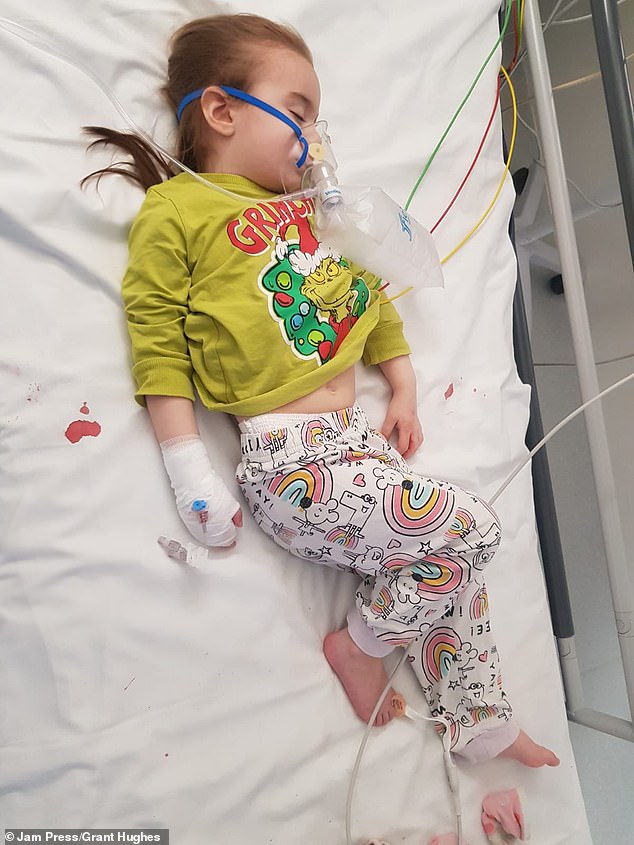
Katie Hughes (pictured) was rushed to hospital after having a terrifying seizure but doctors blamed the fit on a high temperature
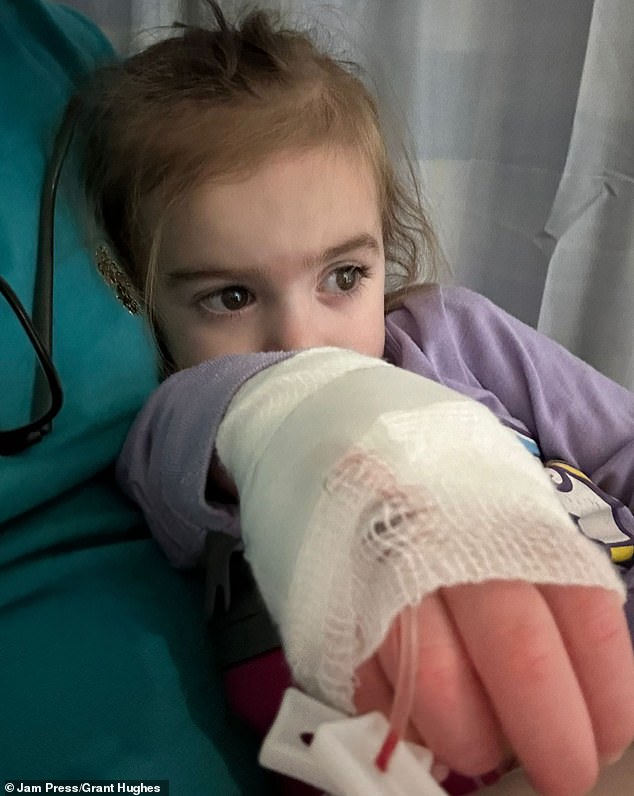
Katie was diagnosed with CLN2 Batten Disease – a cruel, terminal brain disorder that will slowly rob her of her ability to walk, talk and see
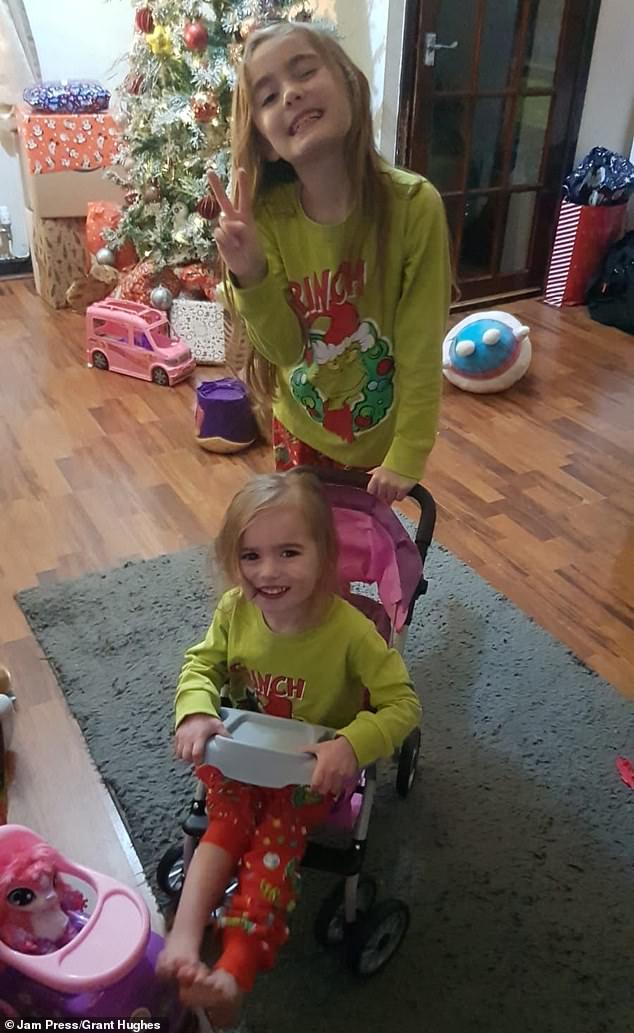
Despite their heartbreak, the brave parents are determined to stay strong for Katie and her big sister MacKenzie, age seven (pictured)
‘I’m not a crying person but I was tearing up – we were in pieces.
‘They told us what was going to happen in the future but they didn’t straight away say she was going to die. I felt like they were skirting around it.
‘I asked them outright what her life expectancy was and they told me it would be early childhood.
‘It’s devastating. It’s hard to wrap your head around because she’s normal – she’s running around fine but all her skills will slowly go.’
Unfortunately there is no cure for her illness but a £500,000 a year enzyme therapy can help slow the progress.
The staggering therapy has to be given directly into the brain every two weeks through a permanent device.
The NHS has a special deal in place for children who have already started the treatment or who can start it before the end of 2025, according to the NICE website.
But new patients after that may not be able to get the treatment on the NHS at all, because health bosses say there’s not enough long-term evidence it works and the price is too high for the NHS budget.
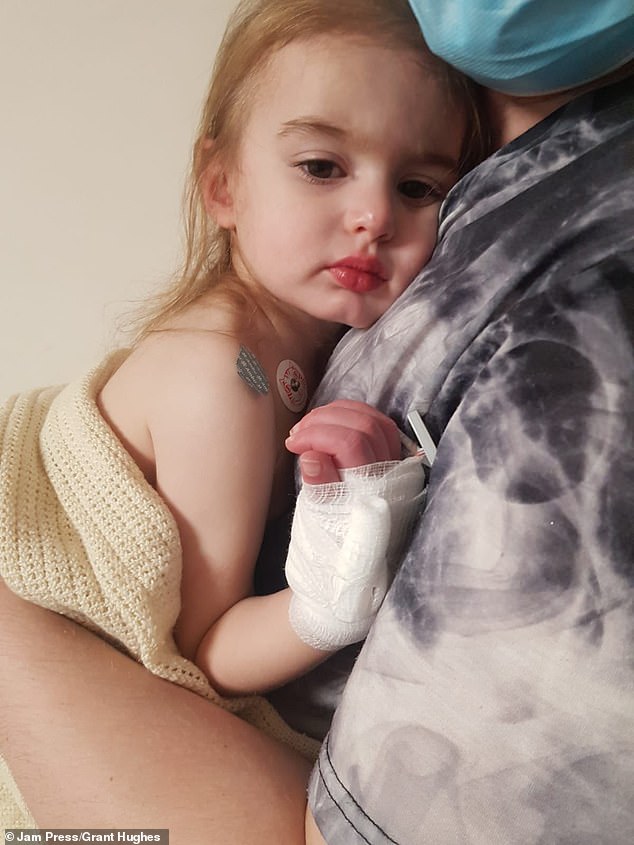
Doctors have warned that she may not live past the age of eight to 12, meaning her parents could lose their daughter before she even reaches secondary school

Unfortunately there is no cure for her illness but a £500,000 a year enzyme therapy can help slow the progress
Katie’s parents are in a desperate race against time to try to get her onto the treatment before the deadline – or raise enough money to go private or even abroad if they have to.
‘As a mother you’re always there for your children and I’m expected to just sit down and slowly watch her deteriorate and go,’ Jessica told NeedToKnow.
‘It’s just hard to see that because she’s only three – she hasn’t even lived her life yet.
‘She’s too young to understand what’s happening to her.’
Katie’s symptoms first appeared in January this year.
Despite their heartbreak, the brave parents are determined to stay strong for Katie and her big sister MacKenzie, age seven.
Jessica added: ‘Everything is on a timer now.
‘We want to take her to theme parks and Disney World while she can still enjoy it.
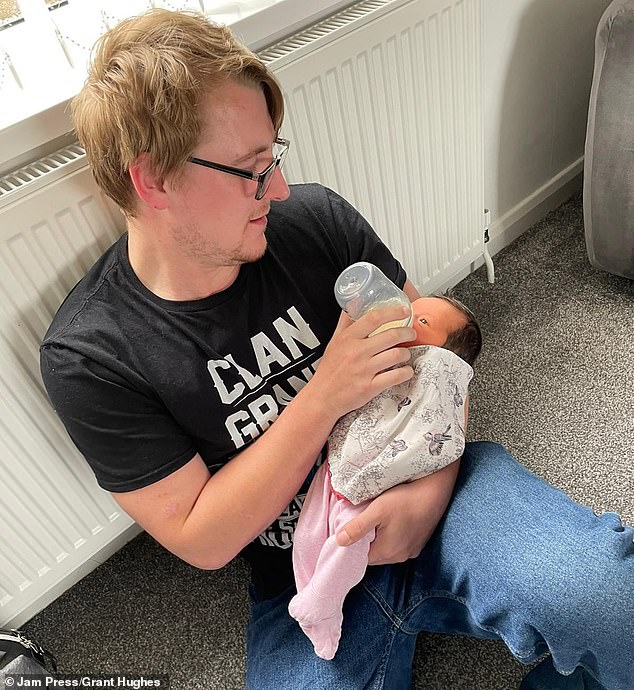
Katie’s parents are in a desperate race against time to try to get her onto the treatment before the deadline – or raise enough money to go private or even abroad if they have to

Katie’s loved ones have launched a fundraiser to help cover the sky-high treatment costs, specialist equipment and special days out
‘Even that’s not simple – because she’s epileptic we have to pay £100 for special glasses so she can cope with the flashing lights.
‘We put on a brave face every day but secretly it’s destroying. We have to be there for her – and for MacKenzie too.’
Katie’s loved ones have launched a fundraiser to help cover the sky-high treatment costs, specialist equipment and special days out.
Grant added: ‘We just want Katie to have the best days we can possibly give her.
‘She deserves to smile, to laugh and to feel loved every single day we have left.’
